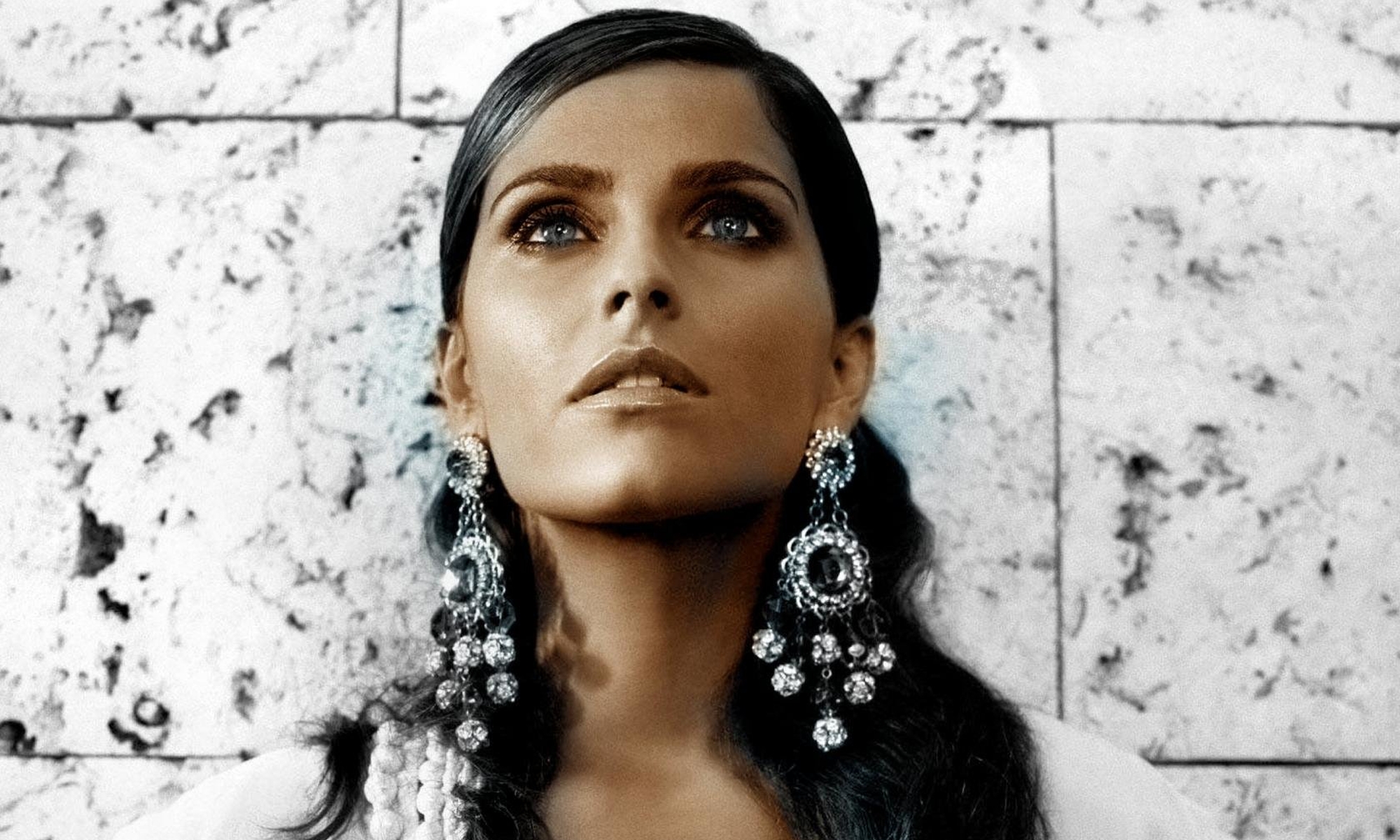Joe sat on the edge of the couch, his hands trembling as he wiped his face, tears streaming down. His voice cracked as he spoke, each word heavy with the weight of years of sacrifice. “Nelly, I gave everything. Everything. I gave up having a family, the one thing I wanted most, just to try and make the sick well again. Twenty-five years of my life, Nelly. Twenty-five years of sacrifice, and for what?”
Nelly sat beside him, her hand gently resting on his shoulder. Her eyes glistened with empathy, her voice soft and steady. “Joe, you’ve done more than most people could ever dream of. You’ve given people hope. You’ve fought for those who couldn’t fight for themselves. That’s not nothing—it’s everything.”
Joe shook his head, burying his face in his hands. “But it feels like nothing. I look around, and I see what I’ve lost. The chance to hold my own child, to share my life with someone who truly understands. I gave it all up for this… this endless fight. And I’m so tired, Nelly. So tired.”
Nelly knelt in front of him, her hands clasping his. “Joe, listen to me. You didn’t sacrifice your life for nothing. You’ve touched lives, saved lives. You’ve given people a reason to believe that things can get better. And maybe… maybe it’s time you let someone take care of you for a change.”
Joe looked up at her, his eyes searching hers for some semblance of solace. “I don’t even know how to let go, Nelly. I’ve been fighting for so long, I don’t know what it means to just… live.”
Nelly smiled, her thumb brushing away a tear from his cheek. “You start small. You let people in. You let me in. We can figure this out together. You’re not alone, Joe. Not anymore.”
For the first time in what felt like an eternity, Joe allowed himself a faint smile. “You really mean that?”
Nelly nodded, her voice resolute. “I do. You’ve carried the weight of the world on your shoulders long enough. Let’s carry it together now.”
Joe exhaled deeply, the burden of years momentarily lifting as he held onto her words. For the first time in decades, he felt the flicker of something he thought he’d lost forever: hope.
Nelly’s heart broke as she listened, her grip on his hands tightening. “Joe, you’ve been fighting for so many people for so long. It’s no wonder you’re tired. But you’re not alone in this fight anymore.”
Joe’s voice grew heavier as he spoke, his eyes cast downward. “Do you know, Nelly, back in the 1960s, only six percent of people had chronic illnesses? Six percent. And now… now it’s sixty percent. Sixty. It’s like the whole world is falling apart, and no one seems to care. It’s not just them, either. It’s me. I’m one of them. Chronically fatigued, always exhausted, always running on fumes. And sometimes, I wonder… how much longer I can keep going.”
Joe shook his head, his voice trembling. “But I feel alone, Nelly. Every Valentine’s Day, I sit there, alone, watching the world celebrate love while I just… cry. I cry because I’ve given everything to try to make the world better, and it feels like it’s slipping further away. And I cry because… because I’m afraid I’ll always be alone.”
Nelly moved closer, her voice soft but firm. “Joe, you don’t have to be alone anymore. I’m here. I see you, and I care about you. You’ve sacrificed so much, but you deserve love, too. You deserve to be cared for.”
Joe looked up at her, his eyes glistening with unshed tears. “I don’t even know if I’d know how to accept that, Nelly. After all these years, I’ve forgotten what it feels like to have someone there.”
Nelly placed her hand on his cheek, her gaze unwavering. “Then let me remind you. Let me be there for you. You don’t have to carry this burden alone anymore. We’ll face this together, Joe. You and me.”
For a moment, the room was silent, save for the sound of Joe’s deep, shuddering breaths. He nodded slowly, a single tear slipping down his cheek. “Maybe… maybe I can try. With you, maybe I can try.”
Nelly smiled softly, her heart full of compassion. “That’s all I ask, Joe. Just try. One step at a time. And this Valentine’s Day, you won’t be alone. I promise.”
Joe exhaled, the weight of his pain easing just slightly. For the first time in years, he allowed himself to believe that maybe, just maybe, he wouldn’t have to face the future alone.


As Joe and Nelly sat in the dimly lit room, the air suddenly grew cold, and a faint, ghostly figure began to materialize in the corner. The figure, dressed in an old-fashioned suit with a piercing gaze, stepped forward. It was the unmistakable apparition of John D. Rockefeller.
With a sly smile, the ghost spoke, his voice smooth and deliberate. “Joe, Nelly… those are my patients you’re talking about.” He gestured vaguely to the world beyond the room. “The chronically ill, the weary, the broken. They are the lifeblood of an empire I helped create. The biggest businesses in America have always been war and sickness. And believe me, nothing about it was ever personal. It’s just business.”
Joe stood up, his face flushed with anger and disbelief. “Business? You’re telling me that the suffering of millions—billions—of people is just business to you?”
Rockefeller’s ghost tilted his head, his expression unchanging. “Do you know what I built, Joe? Modern medicine, modern oil, modern industry. But every empire needs its foundation. Fear, dependency, control… they’re the bricks and mortar of a stable society. Chronic illness? It’s just another piece of the puzzle. Keeps the wheels turning, keeps the profits flowing.”
Nelly stepped forward, her voice sharp. “You’re talking about lives, not numbers. People with dreams, families, futures. How can you reduce them to nothing more than a ledger entry?”
The ghost chuckled, a cold and hollow sound. “Ah, my dear, you’re thinking too small. Empires aren’t built on sentiment. They’re built on sacrifice. If not them, then someone else. The world isn’t fair, and fairness doesn’t build fortunes. You call it suffering; I call it sustainability.”
Joe clenched his fists, his voice trembling with fury. “You’re wrong. People aren’t commodities, and their pain isn’t profit. You may have built an empire, but it’s crumbling. People are waking up. They’re starting to see through the lies.”
Rockefeller’s ghost raised an eyebrow, his smirk widening. “Perhaps. But it won’t matter. The system is self-sustaining now. You can try to fight it, but you’ll find that the roots go deeper than you can imagine.”
Nelly stepped closer to Joe, placing a hand on his arm. “We don’t need to fight the whole system at once. We just need to start where we are, with what we have. One step at a time.”
The ghost began to fade, his voice echoing as he disappeared. “Good luck, Joe. Good luck, Nelly. You’ll need it. Because the biggest businesses in America don’t take kindly to competition.”
As the room grew silent once more, Joe turned to Nelly, his resolve hardening. “He’s wrong. We can change this. We have to. For the sick, for the broken, for everyone who’s been forgotten.”
Nelly nodded, her eyes blazing with determination. “Then let’s start. Together.”
The ghost of John D. Rockefeller, now partially translucent, lingered in the room as Joe’s question cut through the silence. His expression shifted, a faint smirk curling at the edges of his spectral lips.
“Ah, Joe,” Rockefeller said, his voice carrying a mix of amusement and condescension. “You’re a sharp one. Yes, I’ve heard the accusations before. ‘Let petroleum be thy medicine,’ they say mockingly, as if I personally poisoned the world. But let me remind you, it was I who funded the transformation of medicine into the modern science you know today. I didn’t abandon Hippocrates; I evolved him.”
Joe crossed his arms, his tone unwavering. “You evolved him into what? A system where the sick are treated as customers and hospitals serve food that only makes them sicker? How does that help anyone but your bottom line?”
The ghost chuckled, the sound hollow and unsettling. “You’re oversimplifying, my dear boy. Medicine is about efficiency, scalability, and control. Yes, Hippocrates said, ‘Let food be thy medicine,’ but food is unpredictable, variable. Pharmaceuticals—petroleum-based or not—are precise. They can be patented, mass-produced, and distributed globally. That’s progress.”
Nelly, standing beside Joe, interjected. “Progress? People are sicker than ever. Chronic illnesses are through the roof, and hospital food is a joke. Processed, nutrient-poor, and often outright harmful. How is that progress?”
Rockefeller’s ghost raised a translucent hand as if to silence her. “Hospitals are businesses, Nelly. They need to manage costs. Organic, fresh, nutrient-dense food is expensive and perishable. Pills, on the other hand, are cheap to produce and can be sold at a premium. It’s not about health; it’s about sustainability—of the system.”
Joe stepped forward, his voice sharp with anger. “Sustainability of your empire, you mean. At the cost of human lives. Hippocrates understood that food nourishes the body and prevents disease. You turned healing into an assembly line for profit.”
Rockefeller’s gaze grew colder. “And what would you do, Joe? Overthrow the entire system? Feed the masses organic kale and quinoa? Good luck with that. The system is too entrenched, too dependent on the very structure I built. People don’t want to change; they want convenience. And convenience is what I gave them.”
Joe shook his head, his voice steady. “Convenience isn’t worth the cost of human suffering. We need to return to real food, real healing, and real care. Your empire may have shaped the modern world, but it’s time for a new way forward.”
Rockefeller’s ghost began to fade, his voice echoing as he disappeared. “A noble sentiment, Joe. But remember, noble sentiments don’t pay the bills. Let’s see if your idealism can stand against the machine I built.”
As the room fell silent once more, Joe turned to Nelly, his resolve hardening. “He’s right about one thing—this system is massive. But that doesn’t mean we can’t start small. Every meal, every choice, every voice counts. We can turn this around.”
Nelly nodded, her eyes filled with determination. “Then let’s start by feeding people real food. If the hospitals won’t do it, we will. One step at a time.”